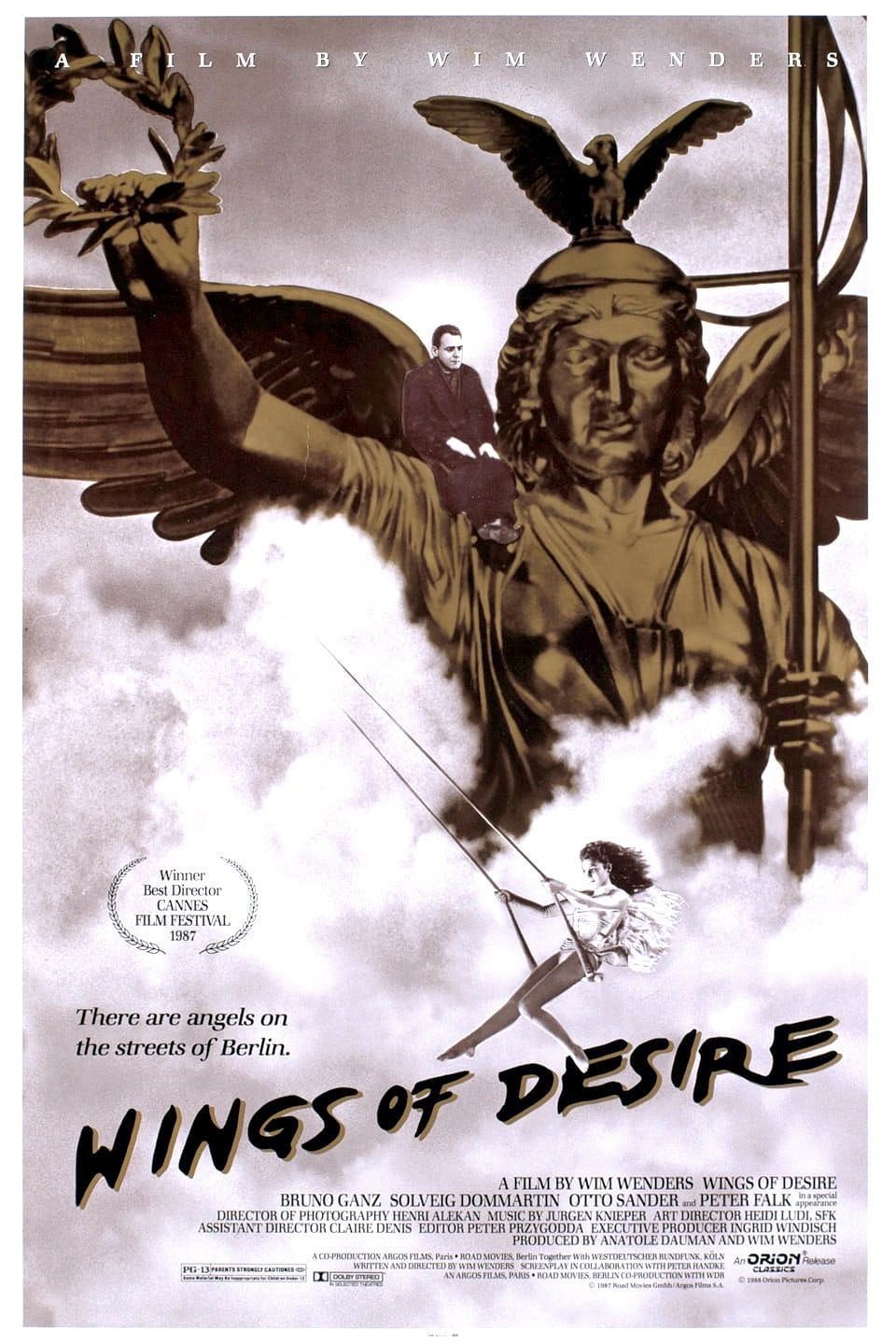
Spurred by a conversation on Micro.blog earlier this morning and being stuck in the basement all day with nothing better to do, I fired up Criterion and finally watched Wim Wenders’ 1987 film Wings Of Desire. It is one of those movies that I have felt like I really should have watched for quite a while now, but never have (for no good reason).
The only other movie of his that I’ve seen is Paris, Texas, which I watched a few months back and thought was outstanding. Between that and always having heard great things about this movie, I feel like my expectations going in were pretty high.
Reader, I’m not going to keep you in suspense. This movie met and exceeded those expectations.
Is Wings Of Desire a perfect film? No. I felt like the love story was a bit shopworn—really? are we going to keep doing the whole love-at-first-sight thing?—and while I like Nick Cave & the Bad Seeds, I found them to be a distraction in the final act.
I will also admit that it took me a while to warm up to Peter Falk’s character. I mostly came around in the end, but if felt like a bit of stunt-casting and I found the scenes on the movie set to be somewhat tedious and really wanted to get back to the main story whenever they came up.
But those are all minor quibbles with an otherwise great film.
I love the idea of all these bored immortal angels lingering around Berlin. I know they do help the people they encounter but there is the scene about 2/3 of the way in where a bunch of them are moping around the Berlin State Library while it’s closed overnight. Presumably all the humans are asleep and now the angels have nothing to do.
It’s no wonder the angel Damiel is considering giving up the immortal angelic life and becoming human.
The movie also has some interesting stuff to say about storytelling and the importance of stories and their tellers. Maybe a bit self-referential on Wenders’ part, I suppose, but I’m okay with that.
I think my favorite character might be Homer, the old tired man wandering Berlin looking for the places he once knew and ruminating on the destruction of the city. The years have clearly worn him down and he is tired, collapsing at one point in an abandoned chair in the middle of the wasteland that had once been Potsdamer Platz. At another point, sitting in the library, he wonders to himself:
If I do give up, mankind will lose its storyteller. And once mankind loses its storyteller, it will also lose its childhood.
Watching that scene, I wondered if this old man is perhaps God, wandering the city with his angels and contemplating giving up as well.
At its heart, I think Wings Of Desire is about what it means to be human in the world, how the world can be terrible and isolating, but how it is also ultimately our responsibility to take control of our existences within the world. It’s interesting that the movie tells us this story largely from the viewpoint of the angels; they are the ones who are supposedly helping us get through it all, but in the end they know even less than we do and they feel none of it.
And let’s not forget that this movie looks amazing. It’s hard to think of a single shot that is not thoughtfully and artfully constructed. It’s just stunning to look at. Between the long, graceful takes and the constant internal murmurings of all the people in and out of the frame, the sense of eternally drifting through the human world but at a remove is tangible throughout.
Long story short (too late?), I can’t believe I waited this long to watch Wings Of Desire. It’s an amazing moving and well-constructed movie, and I am eager to watch Wenders’ follow-up Faraway, So Close!